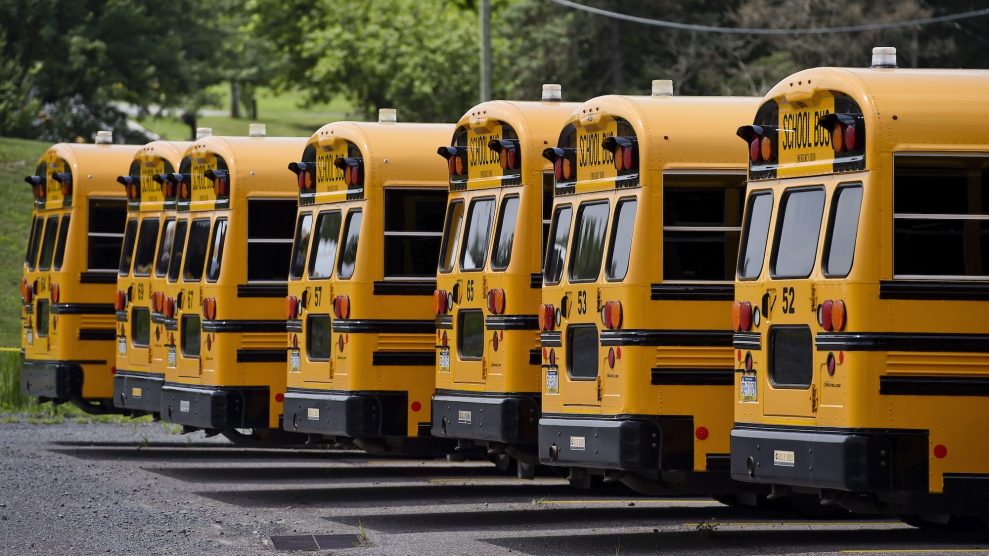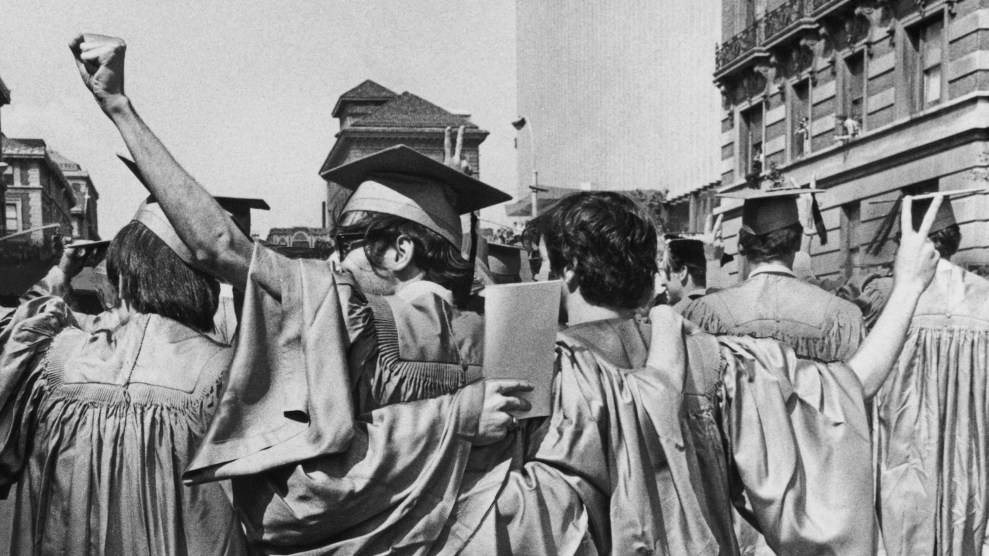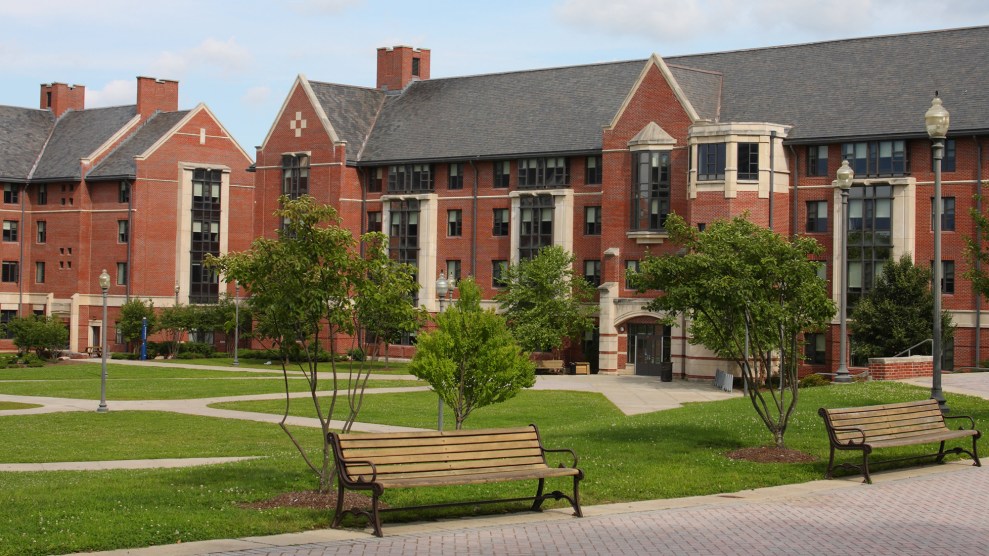
<a href="http://www.shutterstock.com/gallery-187633p1.html">Monkey Business Images</a>/Shutterstock
The decision to re-open college campuses has been among the most contested battles in how to properly manage the coronavirus pandemic. Weeks into the fall semester, it’s becoming clearer by the day that schools are not equipped to properly manage the pandemic. Hundreds of students have tested positive since returning to campus, and now many schools are backtracking by sending students home to continue classes virtually.
At the University of Alabama, 1,200 of the school’s 38,500 undergraduates have tested positive. The University of South Carolina’s positive test rate is more than 27 percent, according to Bloomberg. Temple University, Colorado College, the University of North Carolina, and the State University of Oneonta in upstate New York have all already sent students back home.
It’s not hard to explain why containing outbreaks on college campuses is so difficult. While most schools have prohibited large parties, it’s college, and communal experiences like college football games and dorm living are still underway. Unfortunately, despite all the good intentions for social distancing, the responsibility has been put on students, instead of the institutions, and that means students are essentially being set up to fail. “The irresponsible and downright dangerous actions of a small number of our students have created the very real possibility of ending an in-person semester,” Chancellor Robert Jones from the University of Illinois in Urbana-Champaign, said in a statement. More than 100 students and organizations at the school have been disciplined for ignoring quarantine guidance. Now, according to the News Gazette “campustown becomes a ghost town as UI student lockdown begins.”
Of course, all of this was predictable from the outset. My colleague Molly Schwartz spoke to one college administrator back and July, who said this:
We know our students want to come back to campus. This is not the college experience that they signed up for. But we have to be concerned with health and safety. When you think about reopening an overwhelmingly residential campus, and look at the social distancing requirements that are in place, and the recommendations for testing—it’s complicated. Many of our residence halls are over 50 years old, and they were built at a time when there was an emphasis on communal living. You had a roommate, you shared a bathroom, you share a living space, and all of that flies in the face of what’s appropriate in a COVID-19 environment.
That school reopened for the semester, and spikes in positive coronavirus tests have already been reported. “We must not relax the universal precautions that we know keep our community safe,” one dean wrote to UCONN students before long Labor Day weekend. “Wear a mask, stay with your family unit, maintain physical distance, and remain on campus this weekend.”

















